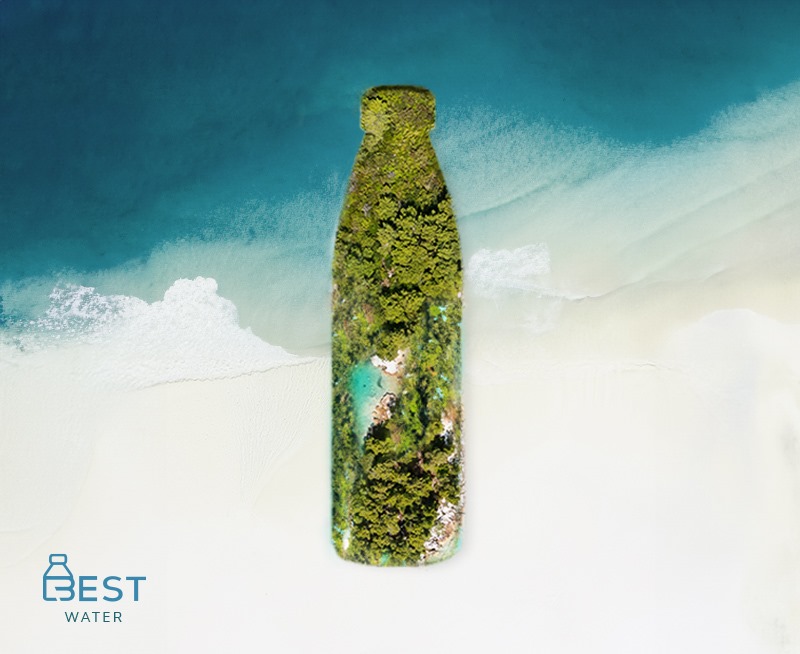The Ultimate Guide to Choosing the Best Water Filter
Introduction to Water Filtration
Clean water is a cornerstone of a healthy life, and the technology behind water filtration plays a pivotal role in ensuring access to it. This guide delves into the essence of water filtration, highlighting its importance and the technological advancements that make it possible. Water, the source of life, can also be a source of contaminants. Understanding the various filtration methods available is the first step in safeguarding your health and ensuring your water is pure and safe to drink.
Understanding Water Filters
Water filters come in various types, each designed to target specific contaminants and water quality issues. The range of technologies available caters to different needs and preferences, from activated carbon filters to reverse osmosis systems. This section aims to demystify these technologies, clearly understanding how each type of filter works to purify your water.
Choosing the Best Water FilterreadingSelecting the best water filter for your home involves considering various factors like water quality, usage requirements, and budget. This part of the guide compares top models, helping you navigate the options to find a filter that best meets your needs. Remember, the best water filter is one that effectively addresses the specific contaminants present in your water supply while fitting into your lifestyle.
Installation and Maintenance
Installing a water filter can range from a simple DIY project to requiring professional assistance. This section outlines the steps for both, ensuring you can make an informed decision. Maintaining your water filter is crucial for its performance and longevity. Here, you’ll find tips on keeping your water filtration system in top condition, ensuring it provides clean water for years to come.
Health Benefits of Filtered Water
Filtered water isn’t just about taste; it’s about health. Removing harmful contaminants from your water can have a significant impact on your well-being. This segment explores the health benefits of filtered water, focusing on how eliminating contaminants like lead, chlorine, and other harmful substances can improve your overall health.
Environmental Impact of Water Filters
Water filters not only benefit your health but also the environment. By reducing dependency on bottled water, these filters help diminish plastic waste. This part of the guide discusses eco-friendly water filtration options and the positive environmental impact of choosing a sustainable water filtration system.
Water Filter Technologies Explained
Understanding the technology behind water filters is key to making an informed decision. This section breaks down complex filtration technologies like reverse osmosis and activated carbon filters, explaining how they work in simple terms. Whether it’s removing sediments or neutralizing odors, these technologies play a crucial role in water purification.
Cost Analysis of Water Filters
Investing in a water filter is a decision that impacts both your health and your wallet. This segment offers a cost-benefit analysis, comparing the initial investment against long-term savings. Additionally, it provides a price comparison of popular brands, helping you find a water filter that fits your budget without compromising on quality.
Customer Reviews and Ratings
What do real users say about their water filters? This part of the guide compiles customer reviews and ratings, giving you insights into the best-rated water filters from a user perspective. Real-life experiences can be invaluable in helping you choose a water filter that meets your expectations.
Expert Opinions on Water Filters
Hear from industry professionals about the nuances of water filtration. This section offers expert opinions and recommendations, providing an authoritative voice on what to look for in a water filter. Whether you’re a large household or living alone, there’s expert advice tailored to your specific needs.
The Future of Water Filtration
Stay ahead of the curve with insights into the future of water filtration. Innovations and trends in the industry are constantly evolving, and this part of the guide keeps you informed about what’s coming next in the world of water filtration.
Water Quality and Filter Efficacy
Not all water is the same, and neither are all water filters. This section emphasizes the importance of testing your water quality and selecting a filter that’s effective against the contaminants present in your water supply. It’s about finding the right match for your specific water type.
FAQs about Water Filters
- What are the main types of water filters available?
Main Types of Water Filters:
- Activated Carbon Filters: Commonly used in household water filters, they remove organic compounds, chlorine, and improve taste and odor.
- Reverse Osmosis (RO) Filters: Highly effective in removing a wide range of contaminants, including dissolved salts and metals. These systems often include multiple stages with sediment and carbon filters.
- Ceramic Filters: Utilize a natural media to trap contaminants. They are effective against bacteria and sediments but may not remove chemicals.
- Ultraviolet (UV) Filters: Use UV light to kill bacteria and viruses. Effective for disinfection but do not remove chemicals or heavy metals.
- Ion Exchange Filters: Commonly used for water softening, they remove minerals like calcium and magnesium, often seen in hard water.
- How often should I replace the filter cartridges?
- Drinking Water Filters: These typically need replacement every 2 to 6 months. If you notice a change in taste, odor, or flow rate, it’s time to change the filter.
- Refrigerator Water Filters: Most manufacturers recommend replacing these filters every 6 months or after filtering a certain number of gallons as specified in the manual.
- Air Filters in HVAC Systems: For residential HVAC systems, filters should generally be replaced every 90 days. If you have pets, allergies, or live in a dusty area, you might need to replace them more frequently.
- Aquarium Filters: The frequency can vary widely depending on the type of filter and the tank’s environment. It’s common to replace mechanical filter media every 2 to 4 weeks, while chemical and biological media might last longer.
- Can water filters remove all contaminants?
- Types of Filters: Different filters use various technologies, such as activated carbon, reverse osmosis, ion exchange, and mechanical filtration. Each type targets specific contaminants.
- Activated Carbon Filters: These are effective in removing organic compounds, chlorine, and some pesticides. However, they are less effective against minerals, salts, and dissolved inorganic compounds.
- Reverse Osmosis (RO) Filters: RO filters are more thorough and can remove a wide range of contaminants, including bacteria, viruses, salts, and chemicals. However, they may not effectively remove certain pesticides and solvents.
- Ion Exchange Filters: These are particularly effective in softening water by removing heavy metals and minerals like calcium and magnesium, but they may not remove organic compounds or microorganisms.
- Mechanical Filters: These filters remove physical particles from water, like sediment and rust, but are not effective against dissolved contaminants.
- Limitations: No filter can remove 100% of all contaminants. Very small particles and certain dissolved substances can pass through most filters. Also, filters become less effective over time and need regular maintenance or replacement.
- Testing and Certification: It’s important to use a filter that is tested and certified for the specific contaminants present in your water. Organizations like NSF International provide certifications for filters based on their effectiveness in removing certain contaminants.
- Are there any water filters that improve the taste of water?
- Activated Carbon Filters: These are one of the most popular types of filters. They are effective in removing chlorine, sediment, volatile organic compounds (VOCs), and certain tastes and odors from water.
- Reverse Osmosis Filters: These filters are known for their ability to remove a wide range of contaminants, including dissolved solids, which can improve the taste of water significantly.
- Ion-Exchange Filters: These filters are particularly good at softening water, which involves removing minerals like calcium and magnesium that can cause water hardness and a poor taste.
- Ultraviolet Filters: While primarily used for disinfection, they can also aid in improving the taste by removing bacteria and viruses that might cause a bad taste.
- Mechanical Filters: These filters remove physical impurities such as sediment and dirt, which can affect the taste and clarity of water.
- What is the average cost of a good quality water filter?
Conclusion
In conclusion, choosing the right water filter is essential for ensuring the quality of your drinking water. This guide aims to provide comprehensive insights to help you make an informed decision.




